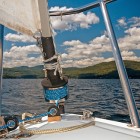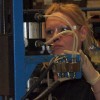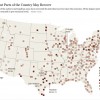Background
This page is no longer being updated. For ongoing coverage of this topic, go to New Hampshire Public Radio.
______
The Lakes Region covers a good portion of central New Hampshire, including all of Belknap County along with parts of Carroll, Grafton and Merrimack Counties.
Like the neighboring White Mountains, the Lakes Region depends heavily on outdoor tourism to support its economy. About 85 percent of the area is woods, including a number of conservation lands, state parks, and town forests. It’s also home to New Hampshire’s largest lake, Winnipesaukee, along with 272 others. Between the area’s rivers, lakes and groundwater, the Lakes Region is home to about 42 percent of the water in New Hampshire.
The region’s rural setting and numerous lakes have spurred rapid development of seasonal homes. While statewide, the U.S. Census Bureau found only 7.8 percent of people worked in construction, in Belknap County, that figure is 10.6 percent. The portion of houses built in Belknap County from 1980-2005 also slightly outpaces the state as a whole. Some towns, like Freedom, Moultonbourough, Hebron, and Tuftonboro, report that more than half the homes are seasonal.
While this high-end construction boom has bolstered the tourism industry by ensuring a steady stream of repeat visitors, it’s hurt the Lakes Region in other ways. So much shoreline land has been developed that it’s getting harder for visitors and residents to get out on the water. In some cases, local governments have had to make agreements with home owners to open their land so that other residents and tourists can access the lakes.
The popularity of the Lakes Region as a site for seasonal homes has also raised property values — and rents. One of the continued challenges the area faces is providing affordable housing for less affluent, year-round residents.
Environmental issues are also a point of concern for the region, where clean water is essential to its brand as a tourist destination. While it’s a popular place for visitors, the Lakes Region is still very rural, and its infrastructure reflects that character. Most homes, for example, rely on septic tanks rather than a sewer system. Broken and poorly maintained tanks — especially in seasonal homes, which remain unoccupied for most of the year — have contributed to problems with E. Coli contamination along some shorelines.











